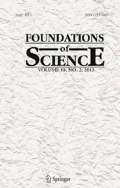Abstract
Focusing on the concept of “the moral self” this essay explores relationships between Aristotle’s Nicomachean Ethics and John Dewey’s moral pragmatism and tries to evaluate the extent to which in his work on ethics Aristotle may be considered a pragmatist. Aristotle foreshadows pragmatism, for example, in preferring virtue-based to rule-based ethics, in contending that the moral status of a person’s actions and the nature of the person’s selfhood are interdependent, and in stressing the key role of habits in character formation. Aristotle, however, may seem far from the status of pragmatist when he privileges the life of contemplation and posits a moral self that is more static than the one proposed by Dewey. This essay contends that if more attention is paid to Aristotle’s treatment of friendship and to his highlighting of the need for reciprocity then the moral self that emerges from Nicomachean Ethics becomes more dialectical and more at one with that proposed by the American pragmatist. Aristotle, then, may be regarded as setting Dewey on the path towards a model of moral self that is not only deeply concerned about the lives of others but that is also dependent on others for its own existence.
Similar content being viewed by others
References
Anton J.P. (1965) John Dewey and ancient philosophies. Philosophy and Phenomenological Research 25(4): 477–499
Aristotle. (1908). Nicomachean ethics (W. D. Ross, Trans.). Oxford, UK: Clarendon. Available at http://www.ilt.columbia.edu/publications/aristotle.htm..
Aristotle. (1999). Nicomachean ethics (Terence Irwin, Trans.). Indianapolis: Hackett
Bauman Z. (1993) Postmodern ethics. Blackwell, Oxford
Bauerlein M. (1997) The pragmatic mind: Explorations in the psychology of belief. Duke University Press, Durham, NC
Blasi, A. Moral cognition and moral action: A theoretical perspective. Developmental Review, 3, 178–210
Cavell S. (2004) Cities of words: Pedagogical letters on a register for the moral life. Harvard University Press, Cambridge, MA
Chambliss J.J. (1990) The influence of Plato and Aristotle on John Dewey’s philosophy. Lewiston, Edwin Mellen
Chazan P. (1998) The moral self. Routledge, New York
Dewey, J. (1976–1983). The middle works of John Dewey, 1899–1924 (Ed. Jo Ann Boydston, 15 vols.). Carbondale: Southern Illinois University Press.
Dewey, J. (1981–1990). The later works of John Dewey, 1925–1953 (Ed. Jo Ann Boydston, 17 vols.). Carbondale: Southern Illinois University Press.
Eagleton T. (2004) After theory. Penguin, London
Haker H. (2004) The fragility of the moral self. Harvard Theological Review 97(4): 359–81
Lear J. (1988) Aristotle: The desire to understand. Cambridge University Press, Cambridge
Lekan, T. (2003). Making morality: Pragmatist reconstruction in ethical theory. Vanderbilt University Press
Levinas E. (1978) Otherwise than being or beyond essence (A. Lingis, Trans.). Kluwer, Boston
MacIntyre A. (1966) A short history of ethics: A history of moral philosophy from the homeric age to the turn of the century. University of Notre Dame Press, Notre Dame
MacIntyre A. (1984) After virtue: A study in moral theory (2nd ed). University of Notre Dame Press, Notre Dame
Martin J. (2002) The education of John Dewey: A biography. Columbia University Press, New York
Mckeon R. (1967) The battle of the books. In: Booth W.C.(eds) The knowledge most worth having. University of Chicago Press, Chicago
Nussbaum M.C. (1986) The fragility of goodness: Luck and ethics in Greek tragedy and philosophy. Cambridge University Press, Cambridge
Nussbaum M.C. (1995) Aristotle on human nature and the foundation of ethics. In: Altham J.E.J., Harrison R.(eds) World, mind, and ethics: Essays on the ethical philosophy of Bernard Williams. Cambridge University Press, Cambridge, pp 102–110
Pappas, G. (1998). Dewey’s ethics: Morality as experience. In L. A. Hickman (Ed.), Reading Dewey: Interpretations for a postmodern generation (pp. 100–123). Bloomington: Indiana University Press.
Randall J.H. Jr. (1958) Nature and historical experience. Columbia, New York
Randall J. H. Jr. (1960) Aristotle. Columbia, New York
Ricoeur P. (1992) Oneself as another (K. Blamey, Trans.). University of Chicago Press, Chicago
Taylor C. (1989) Sources of the self: The making of modern identity. Cambridge University Press, Cambridge
Williams B. (1985) Ethics and the limits of philosophy. Harvard University Press, Cambridge, MA
Wren T.E. (1993) The open-textured concepts of morality and the self. In: Noam G.G., Wren T.E.(eds) The moral self. MIT Press, Cambridge, MA
Author information
Authors and Affiliations
Corresponding author
Additional information
Aristotle, Nicomachean Ethics is abbreviated as NE (Please see footnote 2).
John Dewey (1976–1983). The Middle Works of John Dewey, 1899–1924. Ed. Jo Ann Boydston. 15 vols. (Carbondale: Southern Illinois University Press) is abbreviated as MW (Please see footnote 3).
John Dewey (1981–1990). The Later Works of John Dewey, 1925–1953. Ed. Jo Ann Boydston. 17 vols. (Carbondale: Southern Illinois University Press) is abbreviated as LW (Please see footnote 3).
Rights and permissions
About this article
Cite this article
Pagan, N.O. Configuring the Moral Self: Aristotle and Dewey. Found Sci 13, 239–250 (2008). https://doi.org/10.1007/s10699-008-9137-8
Published:
Issue Date:
DOI: https://doi.org/10.1007/s10699-008-9137-8




